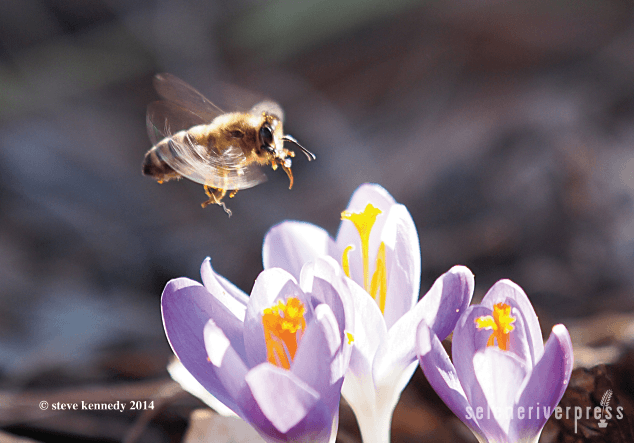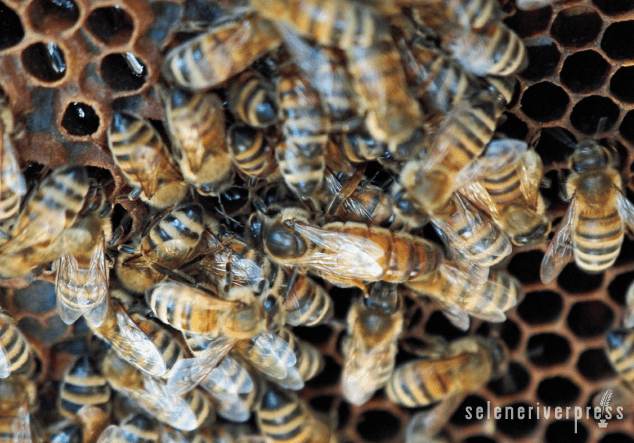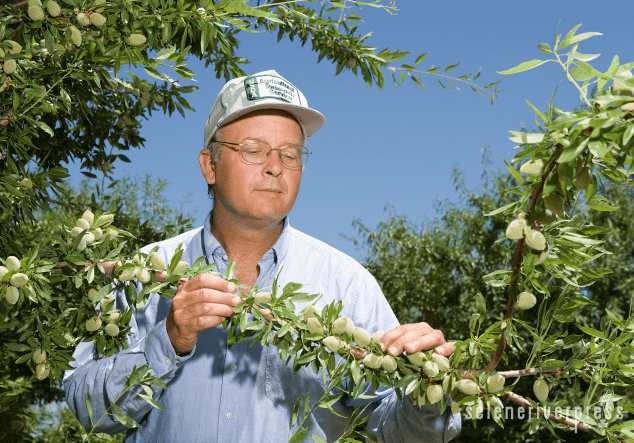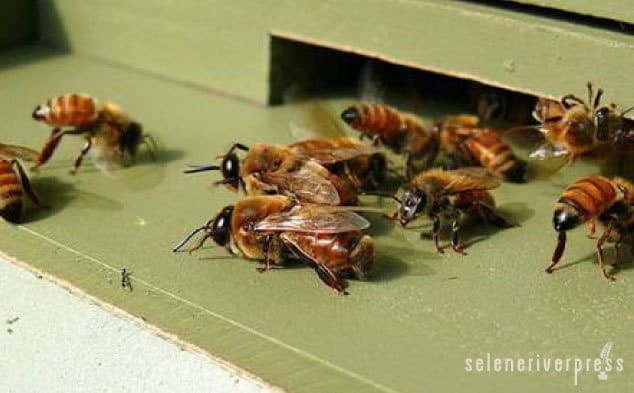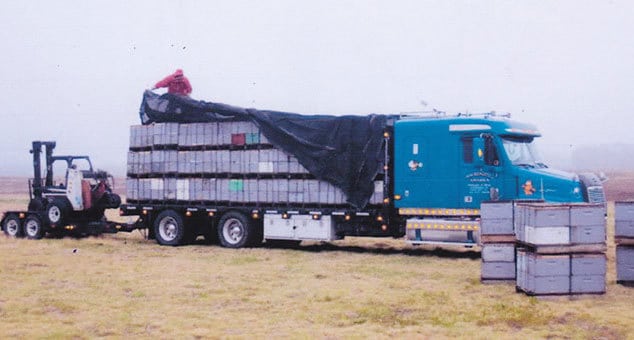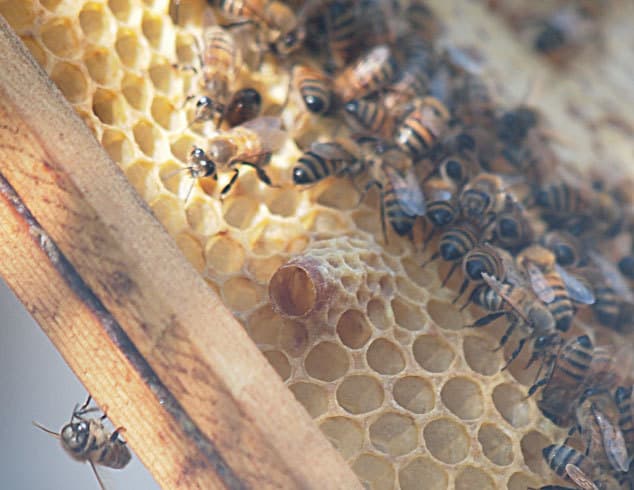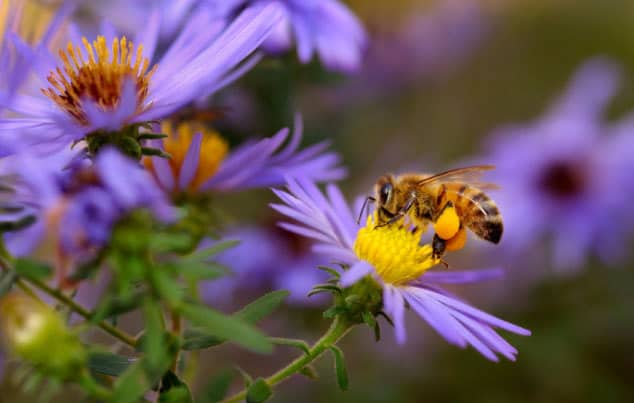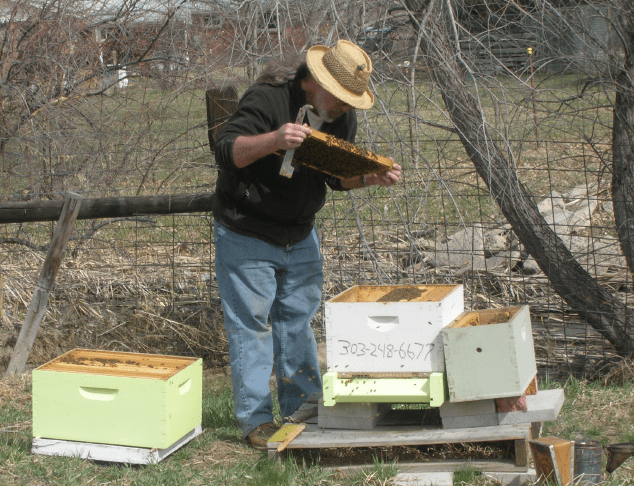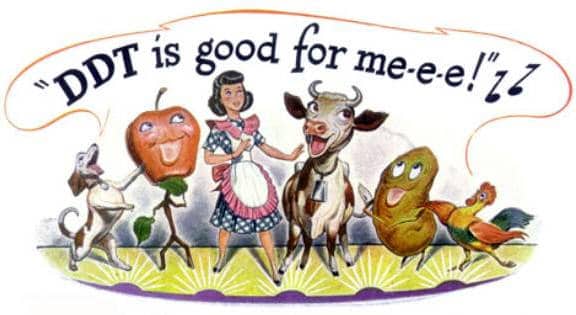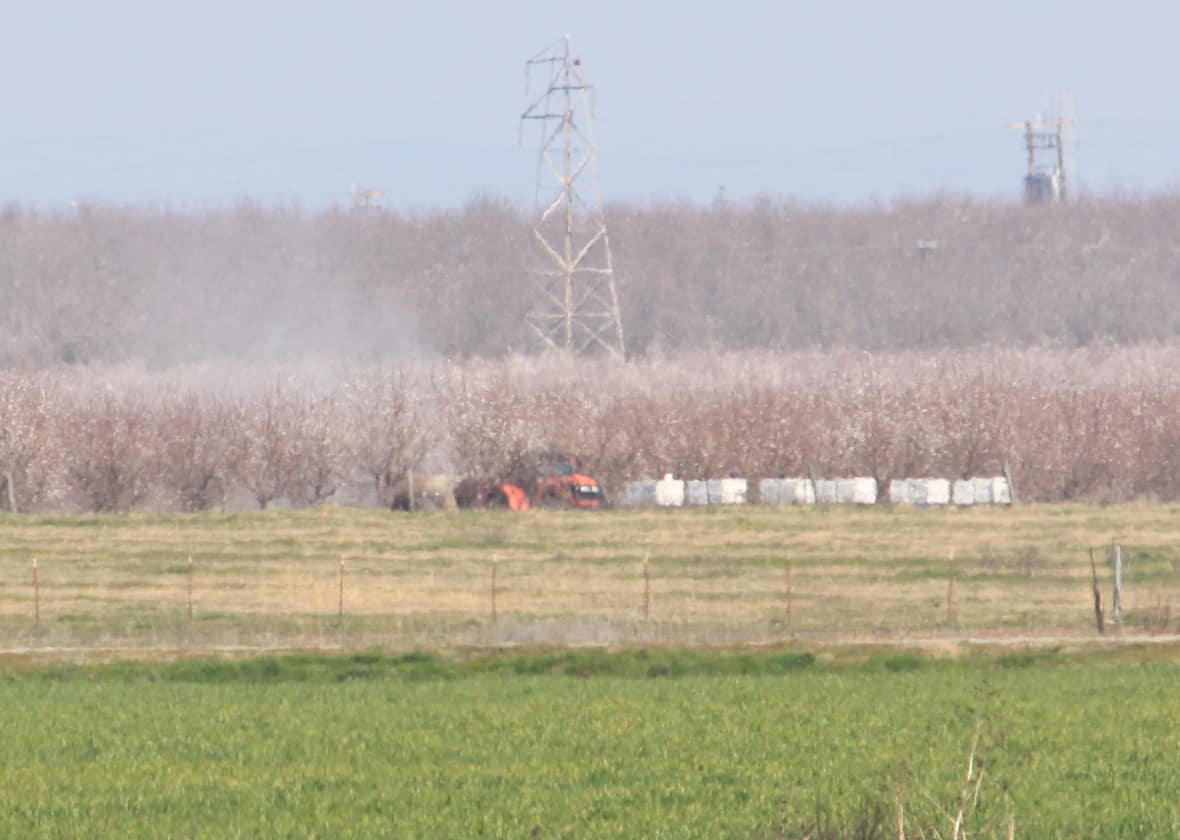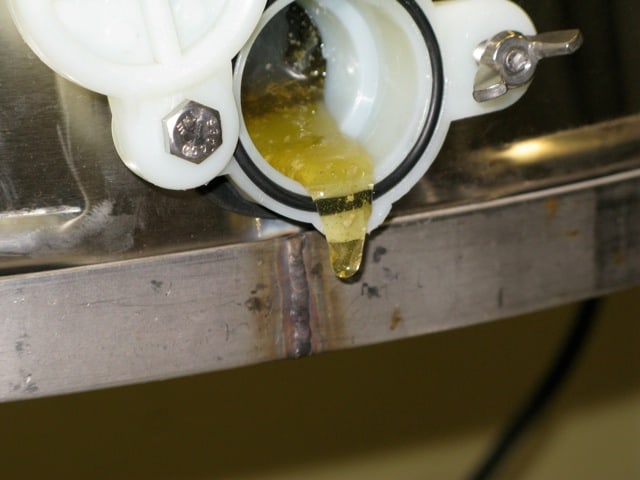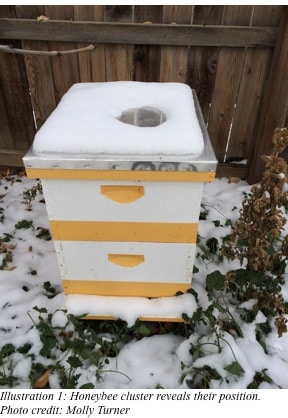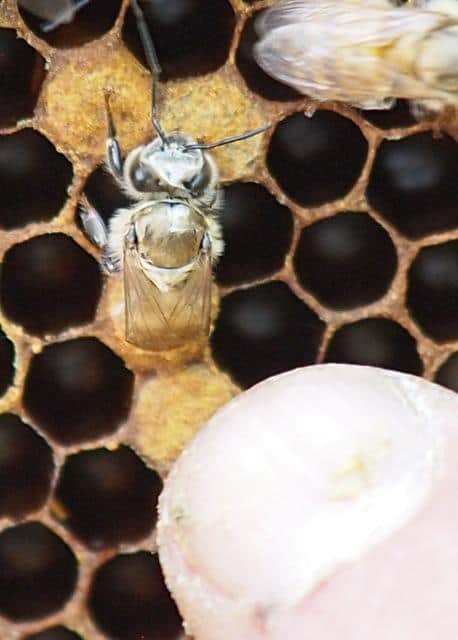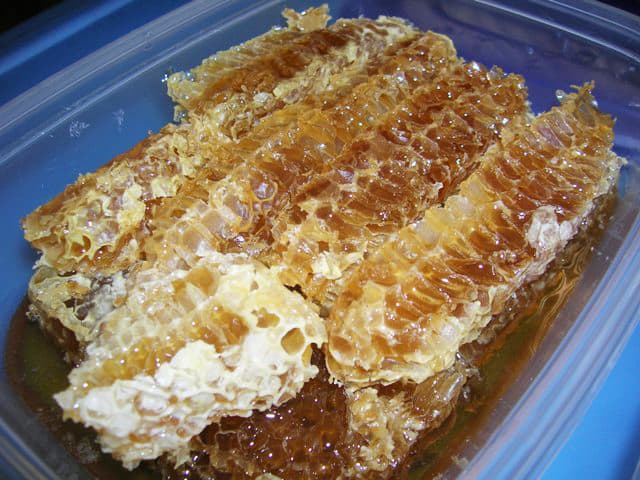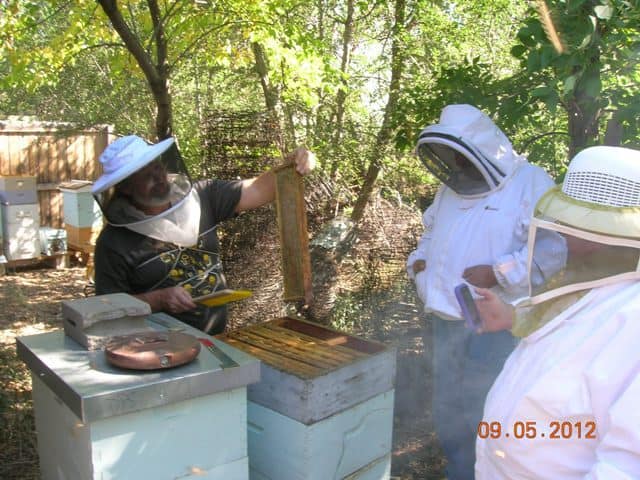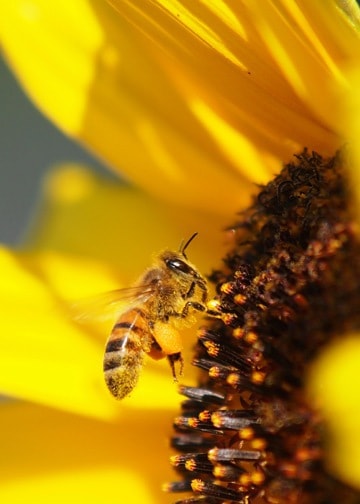Click here to read the first installment of Donald Studinski’s “Wonder and Awe: The Honeybee Worker.” In part one of this series, we covered the early days, or about the first two weeks, of a honeybee worker’s life. It’s a time we can think of as adolescence. At the end of the second week, she […]
Category Archives: Honeybee & Human
There are three castes in the honeybee world: queen, drone, and worker. There is typically only one queen per colony. The rest of the female honeybees are called workers because they do all the work. The queen lays eggs, end of list. The drone provides sperm, end of list. But the workers’ list never seems […]
Geneticist Craig Ledbetter examines a self-pollinating almond selection in a California test plot. Here’s one thing I thought I knew absolutely: almonds require honeybees for pollination. Well, it turns out I was almost correct. Eighty percent of the world’s almond crop is grown in California on more than 600,000 acres. That’s where the best attributes—long, […]
Male honeybees are called drones. Let me just drone on about them for a while. Drones are insects, not to be confused with the high-tech gadgets used to spy on you in modern times. Honeybee drones are good for only one thing: passing their mother’s genes on to future generations. This is no exaggeration. It […]
The netting might be relatively opaque and difficult to see through, but you can be sure that there are millions of living honeybees riding on the trailer. When the truck says something about honey, bees, or apiaries, what’s riding is probably live insects. (Photo by Hackenberg Apiaries, used with permission from Dave Hackenberg, commercial beekeeper.) […]
The honeybee is an amazingly popular topic of conversation among the general public these days—even starring on the cover of Time magazine in 2013. No one is more acutely aware of this than beekeepers like myself. In any given audience, all I have to do is mention I’m a beekeeper, and I’m pretty much guaranteed […]
By Donald Studinski, based on original text by David Braden, Director of Living Systems Institute Living Systems Institute (LSI), a non-profit operating in Golden, Colorado, and Honeybee Keep, a commercial beekeeping business operating in Broomfield, Colorado, have joined forces to sponsor the Bee Safe Neighborhoods program. We pose this question: “Do you want a healthy […]
Don Studinski works the bees for customer Jamie Ngo. This colony is called Sugarloaf 13. Jamie pays an annual pollination fee which helps keep the beekeeper alive. (Photo by Jamie Ngo) I love my fellow beekeepers. Of course we disagree on small, unimportant details, but overall this is a wonderful bunch of people whose hearts […]
DDT advertisement circa 1947 from Pennsalt Chemicals. In a recent article for the American Bee Journal, Ron Phipps writes: […] it is becoming increasingly clear that the widespread use of neonicotinoids on agricultural crops is a major factor [for annual honeybee losses.] The manufacturers of these pesticides, like the manufacturers of tobacco products in an […]
In the middle of an almond orchard, a tractor sprays the trees in bloom RIGHT NEXT to the honeybee hives. Of course, it must be lemonade they are spraying, right? They would never spray insecticide or fungicide right next to the hives, right? As far as honeybees are concerned, what happens in Southern California early […]
Perfectly balanced in glucose and fructose, honey is exactly what the liver needs to reduce blood sugar spiking. In my social circles, this is such a fundamental belief that I thought I knew exactly what I was going to write about—until I looked at the research. I was shocked to find counter opinions. Should a […]
Within the cluster in the hive, honeybees maintain a temperature between 92°F and 95°F year-round. They do not hibernate. They do not migrate. They hunker down and create kinetic heat by vibrating the same thoracic flight muscles that normally beat their wings. They are able to detach the wings and vibrate to produce heat even […]
Honeybees have it pretty good. They play an essential role in maintaining the environment for all living creatures. Their food and water is “provided” by Earth at no charge. Their wings are conveniently designed to help them gather food. Honeybees can also find readily available shelter at no charge, building their comb in any appropriately […]
Before penicillin, Dr. Mercola points out, honey was a conventional means for preventing and treating infection. Now we know why. Raw honey not only kills infectious bacteria, it also reduces the biofilms they produce. Raw honey is the stuff you get from your local beekeepers, including (shameless plug) Honeybee Keep. This is far superior to […]
Specialists at the American College of Chest Physicians report that cough syrups don’t work. If anything, these products may have a negative impact on your health. Popular cough syrups include expectorants to increase mucus flow and decongestants to decrease mucus flow. They also include dextromethorphan (DM) to suppress a cough by shutting down the reflex […]
Honeybees—directly or indirectly—are responsible for one third of everything you eat. These lovely little insects supply our diets with a great deal of our nutritional needs, as well as diversity and pizzazz. Do you like kiwis? Thank the honeybee. Do you enjoy cashews? Thank the beekeeper. Are you fond of watermelon? Thank them both! Honeybees […]

